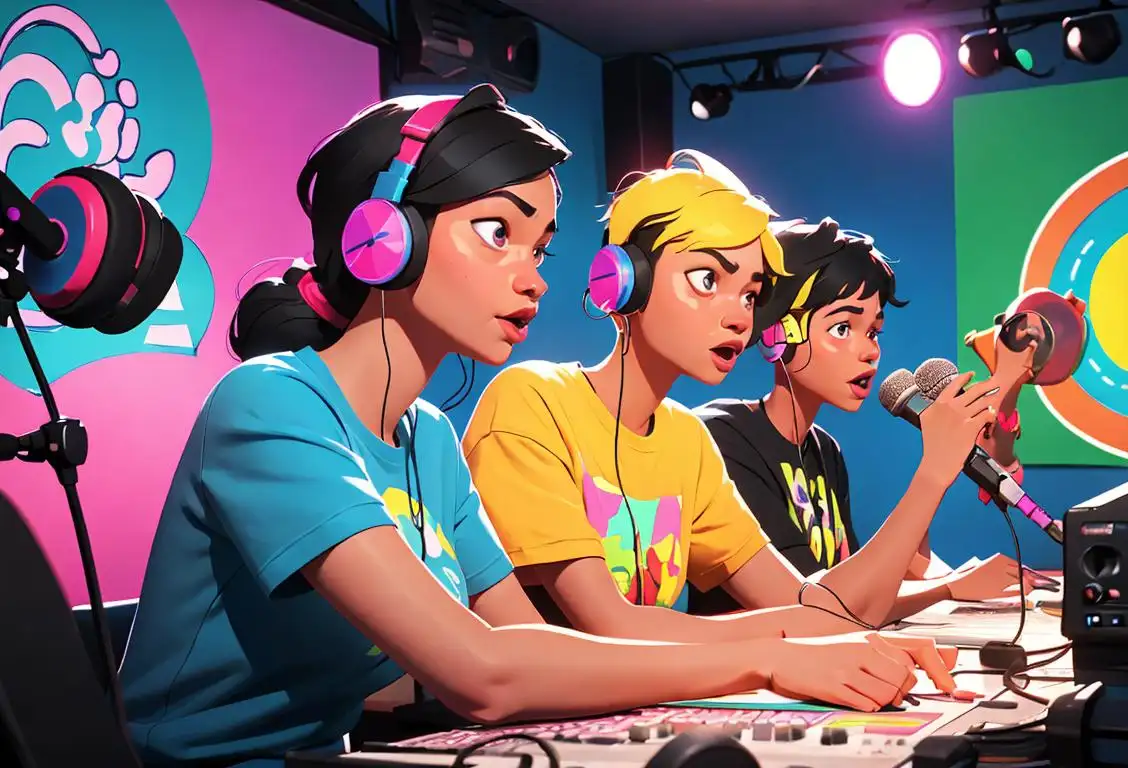National Community Radio Day

Welcome to National Community Radio Day, a celebration dedicated to the wonderful world of community radio! Get ready to tune in and learn about the fascinating history and impact of this unique form of broadcasting.
When is Community Radio Day?
It's national community radio day on the 19th June.
The Birth of Community Radio
Community radio has a rich history that dates back to the early 20th century. It all began with the establishment of the first community radio station, Radio Santa, in Santa Barbara, California in 1923. Back then, community radio stations were run and operated by local volunteers who simply loved the medium and wanted to bring their communities closer together.
Over the years, community radio has evolved and grown, becoming an integral part of many neighborhoods around the world. Today, there are thousands of community radio stations, each with its own unique programming and dedicated team of volunteers.
The Power of Community Radio
What makes community radio so special is its ability to give a voice to local communities and individuals who may not have a platform in mainstream media. These stations provide a space for diverse voices, grassroots activism, and cultural expression.
On National Community Radio Day, we celebrate the tireless efforts of community radio volunteers who work diligently to provide valuable programming that informs, entertains, and connects people. From showcasing independent music to discussing local issues, community radio plays a vital role in fostering a sense of belonging and promoting positive change.
Join the Celebration
Whether you're a fan of community radio or curious to learn more, National Community Radio Day is the perfect opportunity to tune in and show your support. Take the time to explore your local community radio stations and discover the incredible range of programming they offer. From insightful talk shows to eclectic music playlists, there's something for everyone.
You can also join the celebration by spreading the word about National Community Radio Day on social media. Use the hashtag #CommunityRadioDay to show your support and share your favorite community radio experiences.
History behind the term 'Community Radio'
1945
Birth of the concept: Low-power transmitters for local communication
In 1945, the concept of community radio began to take shape with the introduction of low-power transmitters for local communication. These early transmitters, also known as Carrier Current Stations, were developed to serve small geographic areas such as college campuses or apartment buildings. They allowed for the distribution of information and entertainment within a specific community, laying the groundwork for the idea of community-based broadcasting.
1960s
Emergence of alternative media during social movements
During the 1960s, community radio gained momentum as a form of alternative media, particularly in response to social movements. With the rise of counterculture and civil rights movements, activists sought a platform to amplify their voices and share perspectives that were often neglected by mainstream media. Community radio stations became a medium for marginalized communities, facilitating discussions on social justice, activism, and cultural expression.
1970
Regulatory changes: Expansion of LPFM stations
In 1970, regulatory changes in the United States allowed for the expansion of Low-Power FM (LPFM) stations, further fueling the growth of community radio. LPFM stations operate at a lower wattage and cover a limited broadcast range, typically serving a radius of a few kilometers. These stations provided even more opportunities for local communities to establish their own radio stations and broadcast content that reflected their unique identities and interests.
1990s
Digital revolution: Internet streaming and online communities
With the advent of the internet and digital technologies in the 1990s, community radio took on a new dimension. Stations began to explore online streaming, allowing them to reach an even wider audience beyond their immediate vicinity. This digital revolution created opportunities for collaboration and connection between community radio stations around the world, fostering a global network of like-minded individuals and communities who could share experiences, ideas, and programming.
Present
Continued relevance and diversification
Today, community radio continues to play a vital role in providing a voice to underserved communities and promoting local culture. In addition to broadcasting music, news, and community-focused programs, community radio stations often engage in educational initiatives, citizen journalism, and content production that addresses the specific needs and interests of their communities. The digital landscape continues to evolve, offering new platforms and tools for community radio to thrive and adapt to the ever-changing media landscape.
Did you know?
Did you know that community radio stations are often run by volunteers who are passionate about their local communities? They dedicate their time and energy to provide unique programming that reflects the interests and needs of the people they serve!Tagged
awareness fun mediaFirst identified
15th May 2015Most mentioned on
19th June 2015Total mentions
343Other days
Media Live With Themselves Spreading These Lies Every Single Day
Press Day
Media Dickhead Day
Media Have Spent The Whole Day
Community Radio Day
Memorial Day
Heroes Day
Former Prisoner Of War Recognition Day
Liberation Day
Handloom Day






